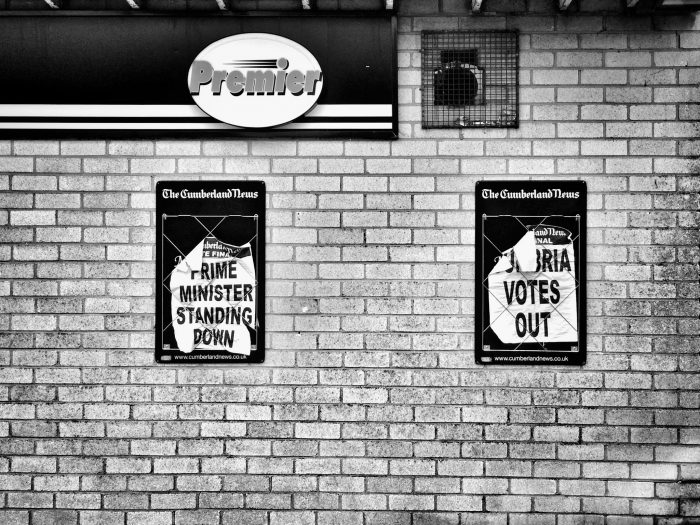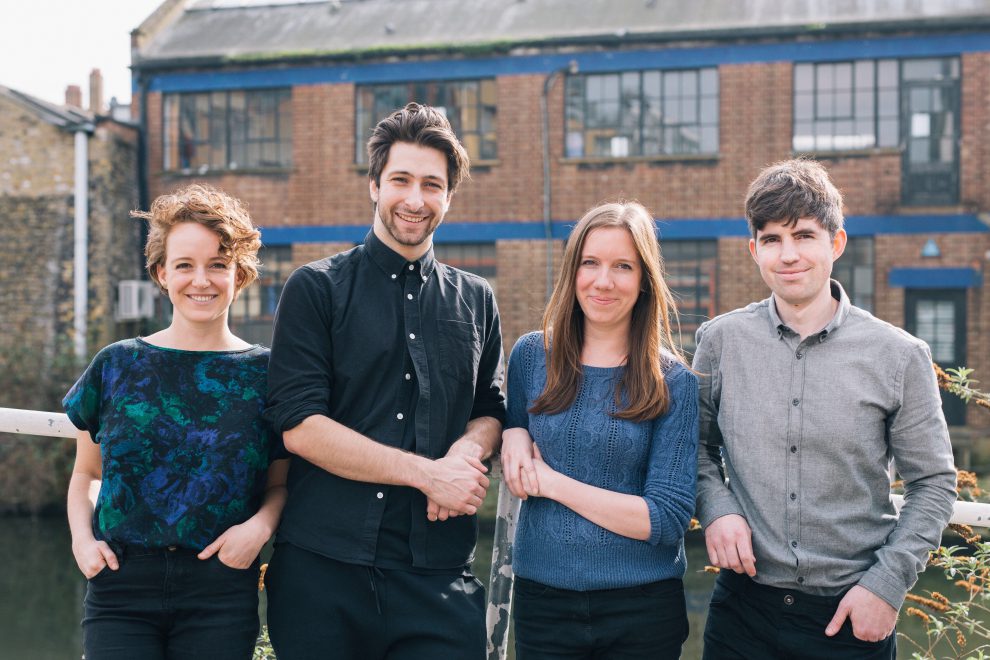
The after-effects of national policies are often felt deeply on a local level. But with limited staff, local newsrooms can’t afford to spare a team to spend months cleaning and digging into complex data sets for a story. The Bureau Local wants to make sure those data stories are still found, and told.
A project of the London-based nonprofit Bureau of Investigative Journalism, The Bureau Local officially launches today with the goal of building up a network of local journalists, data scientists, designers, and others around the U.K. who are interested in improving investigative and accountability reporting. It wants to help more local news outlets produce data-driven investigative journalism, and also be able to step in to offer support when local newsrooms hit a wall in their technical capacities.

“We’re recognizing that those local newsrooms don’t have the resources to take on all this new information, and also in general just to do journalism,” Megan Lucero, who is leading Bureau Local, said. (Lucero was previously the data journalism editor at The Times and Sunday Times.) “A lot of local reporters I talk to have daily quotas for stories, and are starting to get put into their contracts the number of clicks they need to get per week. That isn’t conducive to journalism, let alone investigative journalism. So the main goal of The Bureau Local is public interest reporting and investigative journalism, and we’re trying to really focus that in the U.K., and on local journalism.”
The newly formed team, whose work will be funded in part by a €662,000 (USD $721,643) Google Digital News Initiative grant over two years, also includes Gareth Davies, an experienced local newspaper reporter; Charles Boutaud, formerly of the Trinity Mirror’s data team; and Maeve McClenaghan, an investigative journalist from Greenpeace’s Energydesk. (The project also has a star advisory board in members like Scott Klein of ProPublica; Mar Cabra, who oversees data projects at the International Consortium of Investigative Journalists; and Aron Pilhofer, formerly of The Guardian and The New York Times and now at Temple University.)
Lucero emphasized that a lot of what’s to come will be shaped by how local journalists interested in joining the network respond, what types of assistance they might ask for, and what types of stories the communities they cover are especially interested in. We spoke ahead of today’s formal launch on what she hopes The Bureau Local will achieve, how the network of reporters and data and other design-minded people it wants to build might evolve, and dream projects she wants to help news organizations cover — chief among them, the local level impacts of Brexit. Our conversation, edited for length and clarity, is below.
The things I was focusing on were around how we’re living in a society where there’s more information than we could even imagine processing before. The digitization of information means that we cannot humanly, alone, process all that’s out there. With the new models and modes and business models of journalism, those things come in conflict with the cutting of resources and traditional means of reporting.
We needed a new approach. I started quite simply trying to work on these things within the Times investigations team and the newsroom, but then this project came up, which was about taking those ideas and applying them across all of the U.K.
What is the state of UK local media & tech? Help us answer some questions. Hackpad here > https://t.co/KjZ5trw8G6 #ddj #opendata
— Megan Lucero (@Megan_Lucero) March 20, 2017
The U.K. has a rich history of local journalism. But we’re recognizing that those local newsrooms don’t have the resources to take on all this new information, and also in general just to do journalism: A lot of local reporters I talk to have daily quotas for stories, and are starting to get put into their contracts the number of clicks they need to get per week. That isn’t conducive to journalism, let alone investigative journalism. So the main goal of The Bureau Local is public interest reporting and investigative journalism, and we’re trying to really focus that in the U.K., and on local journalism.
We want to create a network: Being able to combine journalists across the country with other people — whether that’s technologists, civic-minded people, designers — who want to help out. And then, opening data sets up for this community. That might be data sets that aren’t public, but in a lot of cases there’s data that is public but it’s not truly accessible. This might be something like a PDF release that’s difficult to process in a spreadsheet, and helping convert that over. For instance, the prescriptions database is a really great database, but it has four million rows of data, and if you’re a local reporter who maybe is only trained in Excel — Excel can’t open that amount of data. So without the right skills, you can’t access it.
Our final goal is, of course, to get investigative stories out on a local level from this.
We’re working with several official partners: Flourish, our data visualization partner, is going to be helping us provide data visualization tools for our network. We’re doing a summer internship with the Alan Turing Institute, so we get three computer scientists who are going to be helping us with projects this summer.
On the newsroom side, partnerships will be similar to the way The Bureau of Investigative Journalism currently works: The Bureau works on a story, approaches a news organization that it thinks is most aligned with it, and asks if they’d like to publish together. We’ll be working like that, and it can be with anyone from The Bristol Cable to the Ferret in Scotland.
One day we’d like to get to a point with how the Panama Papers worked. We’d take on a national dataset, and we’d work with journalists across the U.K. to help them tell investigative stories in their local areas. We don’t mind however many, and whoever wants to work with us; when there’s a big national story that also works with that, we’ll work with a national paper on it as well.
We are going to be doing a road trip, going around the country and talking to people. We want to be informed by this community. What is a story that needs to be told? What is the data that’s difficult to get? What would make your life easier? We’ll try to find common threads there.
It might be identifying that, say, everybody’s been trying to report out specific police stop-and-search records, and they’re all finding that dataset really difficult, because it needs a lot of work cleaning, or additional FOI work to complete it. The projects we take on will need that sort of work.
It’s quite difficult to speak to people in the abstract, so we do also plan to prepare some data sets and some stories, and bring that to people to ask, is this of interest? Here’s an idea we thought would be interesting, we’ve been working hard on this investigation, do you want to be a part of helping us investigate it? In those cases, we’d approach journalists who are in line with that beat or topic.

The difference here is the work doesn’t just benefit a single newsroom. Developers and technologists are expensive, and these are expensive resources for one hit story. National papers really care about the big picture and the whole country, but I often find that they do the national picture and move on to something else. All that data and all that work would be beneficial to local reporters, if it was given to them in an accessible way. We want to look at how resources can be consolidated.
And we’ll be building a platform as well that can allow for interaction and help, that can connect all these things together.
That is going to be the story for the next several years — how this is going to ripple out across the country, and that is really going to affect local communities. It’s going to affect coastals. It’s going to affect those who had farming or fishery subsidies or research grants.
Whether I can get this done in the next two years is a question. I do need to build up that trust over time. I want to try to get out some first stories quickly, to start to build trust and start collaborations, so that when we do get to that really big story, we’ve got the things in place to make sure it can be done well.
Then, we want to look at local government. There are more mayoral elections and other local elections happening. There’s Northern Powerhouse support. Stories about things that affect people’s lives: transport stories, health stories about your local hospitals, things playing out with the National Health Service. Again, we want our community to inform what we work on; this is just what I’m thinking about right now.
The idea is to make this so crucial that we need to be around. We’re already looking at funders and funding models to help sustain this after two years. We’re already taking conversations with funders about the idea.
We have goals for this to one day be a model for people to replicate themselves in other cities, other countries, other topic areas.
I’ve outlined the goals of what we want to accomplish, but this isn’t prescriptive. This will only be successful if we’re responsive to the community. If it starts to be dictated too much from some group out of London, it’s just not going to work. That’s…in a way how Brexit happened. This is about flipping all of that. It’s attempting a new model. Right now, we’re at a stage where we first need to hear from the community.